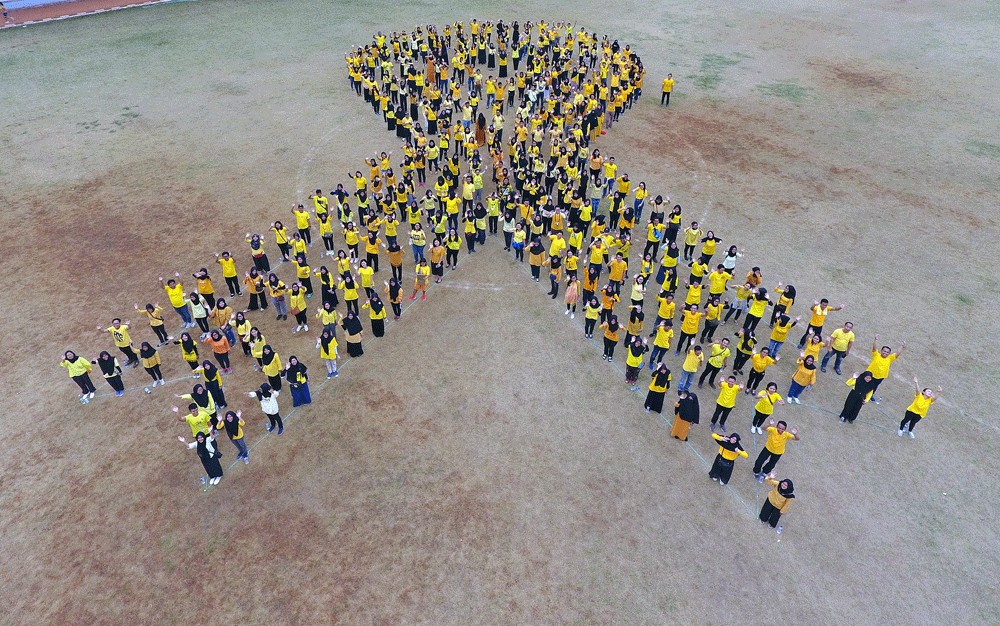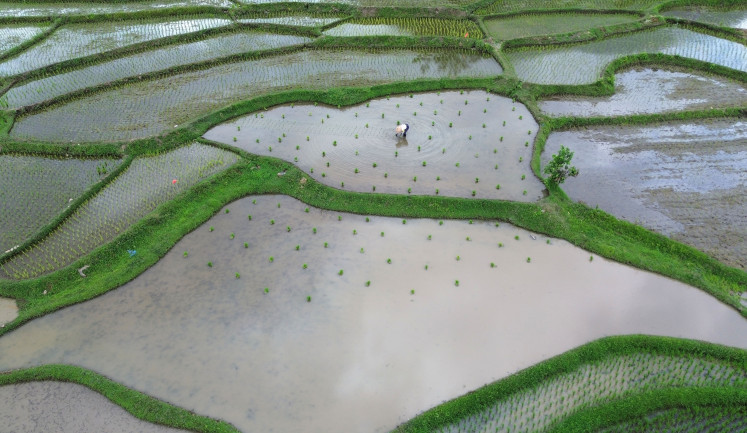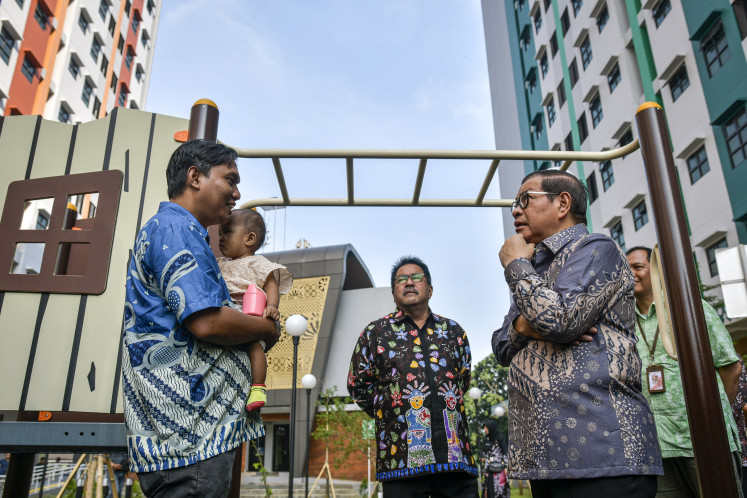Popular Reads
Top Results
Can't find what you're looking for?
View all search resultsPopular Reads
Top Results
Can't find what you're looking for?
View all search resultsMore intensive campaign on preventable cancer is urgent
Change text size
Gift Premium Articles
to Anyone
L
asmi, not her real name, 37 years old, recently knew from her social media about a discounted package of cervical pap smear. She went to the hospital and the obstetrician-gynecologist revealed suspicions of an early cervical cancer lesion that could still be treated. She felt grateful that the cancer was detected in an early stage. She shared her experience on her social media and received many positive comments.
Young people have set up groups on social media like Twitter to drive a movement against cancer. Short films on Facebook also raise public awareness of cancer. They initiate other activities to show cancer patients that they are not alone in their fight against cancer. Through their programs, we are reminded that proper and evidence-based medication is only one of the keys to beat cancer. The other key is empowering both patients and society.
Indonesia has been struggling with increasing cases of cancer. According to Globocan data on 2018, the prevalence of new cancer cases in the country is 348,809 cases and the number of cancer associated deaths is 207,210. Recently controversy ensued when the Healthcare and Social Security Agency (BPJS Kesehatan) said main drugs for colon cancer would be delisted from coverage. Yet the uproar has apparently changed its decision on the drugs for chemotherapy, Bevacizumab and Cetuximab.
In line with the annual World Cancer Day last Feb. 4, this year the world movement for cancer focuses on supporting digital and social media opportunities to raise public awareness on cancer, especially early detection programs. The final goal is to save millions of preventable deaths each year by raising awareness and pressing governments and individuals across the world to take action against cancer.
Early cancer detection program include pap smears and visual inspection of acetic acid (VIA) for cervical cancer and SADARI or self-breast examination for breast cancer, which all need to be campaigned wider. A society-based support system would therefore help the government deal with cancer.
The government could initiate awareness on healthy lifestyles to prevent cancer, among others by involving YouTubers and social media celebrities. At least half of the most common cancers can be prevented through a healthy lifestyle. Lifestyle changes such as stopping smoking, reducing alcohol intake, adopting a healthier diet and increasing physical activity, if well packaged and eye-catching, would be more easily accepted by millennials.
In Asia, Japan has already empowered its society in cancer programs. Recently, Japan has launched the “Society 5.0”, a technology-based, human-centered society.
The Society 5.0 in cancer program also includes digitalization of individual’s health data, among others to diagnose cancer, and remote assisting technology to help doctors in remote place in diagnosis and treatment of cancer.
In big cities, the technology would help treatment of patients according to their genetic profile and would also include remote monitoring services in case of emergency.
In remote places, the technology 5.0 enables physicians to easily attend medical webinars to discuss difficult cases with oncologists. Doctors could send the patient’s X ray or CT scan and forward it to the consultant in the teaching hospital to help them with the analysis. Doctors in remote places could also gain professional instruction.
Indonesia as an archipelago with many remote places could use the 5.0 technology to fight the cancer epidemic. Though costly, it should help decrease the prevalence of cancer and its national financial burden.
At last, actions through society 5.0 and good financial support from government to BPJS for cancer prevention and curative treatment program should follow if we really want to beat cancer in this millennia. I will, and I can fight against cancer!
***
The writer is a PhD student in Gunma University Japan, concentrating on molecular and genomic study.










